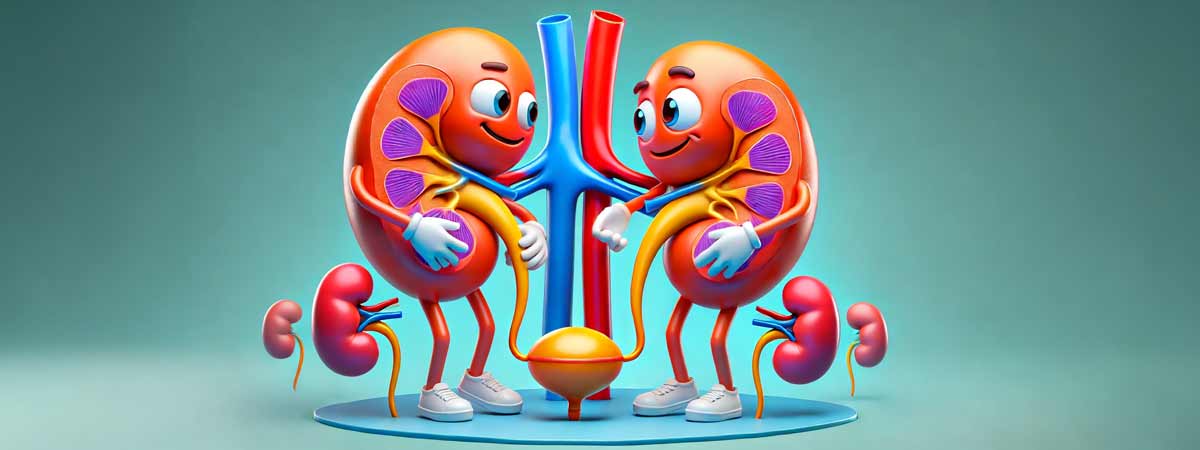Kidneys – What do they do?
Article by Margaret Helwirth, LPN
Kidneys – What do they do?
Kidneys are located behind your belly, just below your ribcage, two bean-shaped organs about the size of a fist, with an approximate weight of 100-200 grams each, depending on gender and side. They constantly produce urine collected in the bladder before, at around 350ml, we feel the urge to eliminate. Kidneys form, with the ureters, the renal pelvis, the bladder, and the urethra, our body’s so-called urinary system.
It is possible to live with just one functioning kidney which, for example, makes it possible to make a living donation.
Waste removal
Kidneys remove waste, toxins, and excess salts that would otherwise harm our bodies. The two most common waste products are urea and creatinine. Urea occurs when our body breaks down protein and creatinine is a by-product of normal muscle use. Creatinine is, together with GFR, a commonly checked blood value to evaluate how well the kidneys are functioning.
Fluid balance / Blood pressure regulation
These two go strongly hand in hand. Balancing the right amount of fluids needed, which constantly changes, is important for blood pressure regulation and ensuring a healthy concentration of minerals/salts in our bloodstream. Kidneys also produce a hormone called Aldosterone which is a key component for blood pressure management.
Red blood cell production
Kidneys produce a hormone called Erythropoietin which tells the bone marrow to produce red blood cells. A red blood cell only lives approx. 120 days, so there is a constant need for new ones.
PH level control
Removing or retaining acid kidneys regulate the narrow margin (7.34 – 7.43, which can be slightly different depending on the laboratory it is measured) of our body’s blood pH level. Sodium Bicarbonate, better known as Baking Soda, is one way how they alkalize our blood.
Bone health promotion
Kidneys produce an active form of Vitamin D which is needed to absorb Calcium and Phosphorus properly, two minerals needed to maintain healthy strong bones.
The close relationship between kidneys and heart
As it is certainly true that the whole body is connected and therefore works together, the kidneys and the heart have formed a special bond with each other. Meaning, people with kidney disease have a higher risk of developing heart disease and vice versa.
If the kidneys are not capable of removing excess fluid from the body the heart has to work much harder, potentially resulting in congestive heart failure. Too high or too low levels of, for example, Sodium and Potassium, can cause serious irregular heartbeats, so-called arrhythmias.
Kidneys suffer, once the heart is not capable of sufficiently pumping oxygenated blood through them, potentially developing kidney disease. These are just a few examples of the strong connection these two organs share.
Talk to your health provider about your concerns, and symptoms you are experiencing so that together, you can find the best course of action. This could mean medication, lifestyle/diet changes or simply keeping an eye on potential problems that may come up and therefore could be dealt with at an earlier stage.
Views: 36

